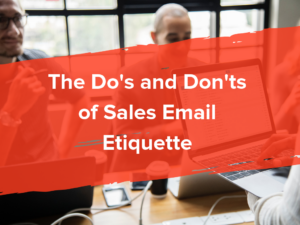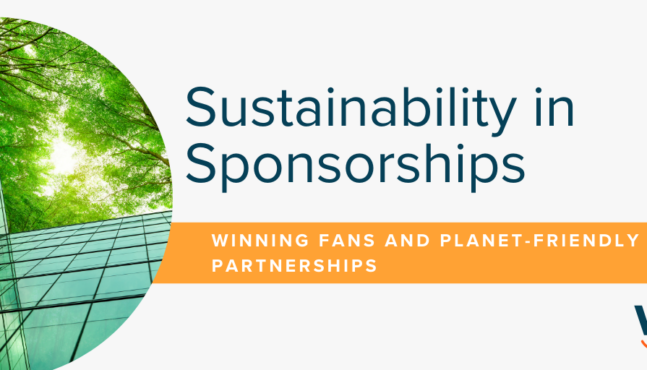
Thanks In Advance: The Do’s and Don’ts of Sales Email Etiquette
We all know a bad email when we see one. Whether someone has spelled your name wrong (despite the fact that it’s in your email address) or included egregious errors, small mistakes make a big difference in how the message of an email comes across. Sales email etiquette rules dictate what’s appropriate and what’s not, no matter your recipient. Knowing the in’s and out’s of professional email communication can make or break your message.
Most of the time, details set you apart. For example, did you know emails signed with “thank you in advance” have a 65.7% response rate? And yet, it’s one of the most hated phrases in email. If just four words can make that much of a difference, imagine what understanding a more broad range of email etiquette can do for your email prospecting? Stay far away from these eight errors to avoid miscommunication:
1) You don’t spellcheck
While this is obvious, it’s often overlooked. Misspellings send a message to the recipient that you don’t care about the task enough to make sure it’s written correctly. Particularly when applying for funding, it’s crucial that there are no typos to emphasize the importance of your ask.
2) You ignore response windows
It’s easy to let emails build up in your inbox, but there’s a sales email response etiquette depending on the person and situation. Immediate teammates/colleagues require a quicker response. External contacts, depending on importance, can typically wait until the end of the week.
3) You overlook punctuation
Punctuation is subtle when you use it correctly and obvious when you don’t. The type of punctuation is also key. Overuse of exclamation points and questions can overwhelm the recipient.
4) You use email as an avoidance tactic
Make sure you use email in the correct instances. Sometimes, a phone call makes more sense when canceling, planning, or speaking about a more complex issue rather than handling it behind a screen. Email is a wonderful tool for larger groups, but it shouldn’t be use to avoid other interactions.
5) There’s no balance
While finding a balance between casual and professional can be tough, it is an absolute must. The tone of an email will change based on who you are sending it to and the relationship that exists between you. Even when sending highly professional emails, make sure you are authentic and human to avoid sounding like a generic ask.
6) You overuse the high priority button
Evaluate the importance of your email, and refrain from using the high priority button unless absolutely necessary. Most of the time, using this feature can be avoided with a descriptive subject line.
7) You use emojis too freely
We all know emojis can be extremely tempting. There are so many options to choose from. However, we do not recommend emoji use unless the recipient has already used emojis. Most of the time, the setting is too formal for emojis or you don’t know the recipient well enough to judge their reaction properly.
8) You’re too sarcastic
Although sarcasm can be casual in conversation, it can be extremely hard to pick up on through a screen. It’s not worth the risk of miscommunication via sales email.




